
Idris Muhammad was an American jazz drummer who recorded extensively with many musicians, including Ahmad Jamal, Lou Donaldson, Pharoah Sanders, and Tete Montoliu.

Bernard Lee "Pretty" Purdie is an American drummer, considered an influential and innovative funk musician. He is known for his precise musical time keeping and his signature use of triplets against a half-time backbeat: the "Purdie Shuffle." He was inducted into the Modern Drummer Hall of Fame in 2013.
Melvin Sparks was an American soul jazz, hard bop and jazz blues guitarist. He recorded a number of albums for Prestige Records, later recording for Savant Records. He appeared on several recordings with musicians including Lou Donaldson, Sonny Stitt, Leon Spencer and Johnny Hammond Smith.

Restoration Ruin is an album by Keith Jarrett on which he performs vocals, guitar, harmonica, soprano saxophone, recorder, piano, organ, electric bass, drums, tambourine and sistra, recorded and released on the Vortex label in 1968. The album and its folk rock attitude remain unique in his whole catalogue - though, it can be seen as the first part of his experimental circle which is neither jazz nor classical music. Here Jarrett overdubs himself on various instruments, similar to the tribal Spirits (1985) or especially the free funk No End. "Sioux City Sue New" was released as a 45 rpm single, backed with "You're Fortunate."

The Last Tango = Blues is an album by American trumpeter Blue Mitchell recorded in 1973 and released on the Mainstream label.

Together Again! is an album by saxophonist Willis Jackson with organist Jack McDuff which was recorded in 1959 and 1960 and released on the Prestige label in 1965.
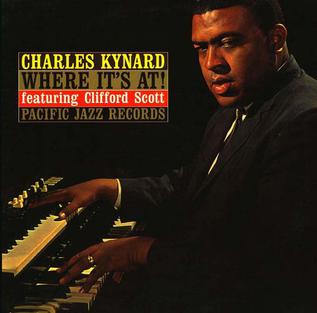
Where It's At! is the debut album by organist Charles Kynard recorded in 1963 in California and released on the Pacific Jazz label.

Professor Soul is an album by organist Charles Kynard which was recorded in 1968 and released on the Prestige label.

The Soul Brotherhood is an album by organist Charles Kynard which was recorded in 1969 and released on the Prestige label.
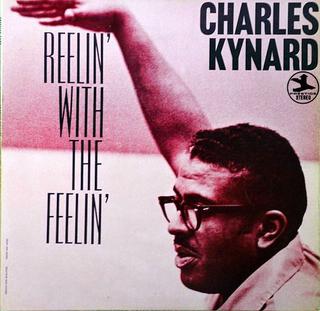
Reelin' with the Feelin' is an album by organist Charles Kynard which was recorded in 1969 and released on the Prestige label.

Afro-Disiac is an album by organist Charles Kynard which was recorded in 1970 and released on the Prestige label.

Four Dimensions is an album by organist Don Patterson recorded in 1967 and released on the Prestige label. The CD is titled Just Friends combined with a Don Patterson, Booker Ervin session without a guitarist.
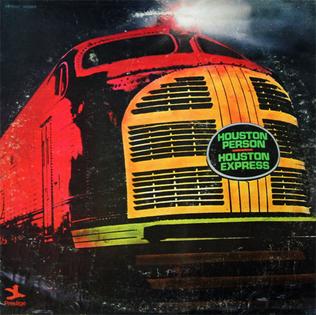
Houston Express is the ninth album led by saxophonist Houston Person. It was recorded April 8 & 9, 1971 and released on the Prestige label. To date, it has not been re-released on Compact Disc.
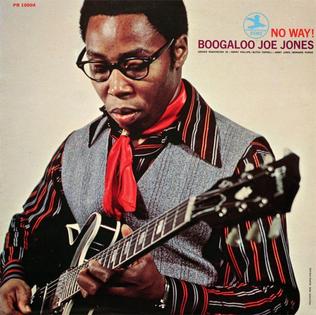
No Way! is the fifth album by guitarist Boogaloo Joe Jones which was recorded in 1970 and released on the Prestige label.

Charles Kynard is an album by organist Charles Kynard which was recorded in 1971 and released on the Mainstream label.

Charles Kynard is an album by organist Charles Kynard which was recorded in 1972 and released on the Mainstream label.
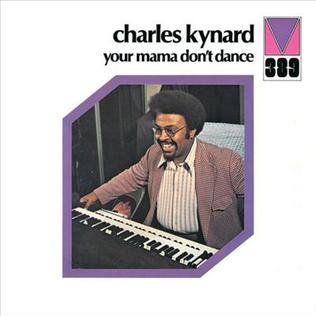
Your Mama Don't Dance is an album by organist Charles Kynard which was recorded in 1973 and released on the Mainstream label.
Jimmy Lewis was an American double bassist who worked with the Count Basie Orchestra and sextet in the 1950s and with Duke Ellington, Cootie Williams, Billie Holiday and Ivory Joe Hunter before moving to bass guitar during his time with King Curtis. He provided the basslines for the musical Hair. Lewis freelanced extensively and performed on many albums by soul and jazz musicians, including Horace Silver and the Modern Jazz Quartet up until the late 1980s. He died in 2000.



















